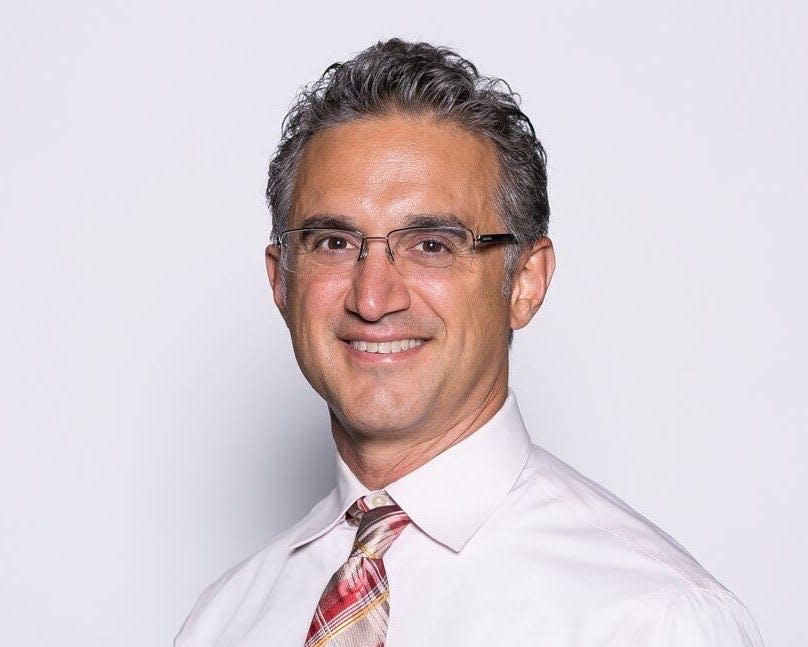The wrong people are leading SUNY. This is why | Opinion
Do you think that all New York students should have a chance to get an affordable liberal arts education? Then the appointment of the new leader of the higher education system might give you pause.
On Dec. 5, the State University of New York appointed John B. King Jr. as the new chancellor. His biography may give us clues as to his possible plan to prioritize workforce training over the liberal arts for SUNY students.
King was state commissioner of education between 2011 and early 2015. Then-chancellor of the Board of Regents Merryl Tisch hired him to implement the state’s Race to the Top plan. The plan had interlocking parts. Schools teach the Common Core learning standards in reading, writing, and math. Students take end of year tests whose scores are entered into a database. Teachers are evaluated on students’ test score growth. Schools with low test scores get taken over by the state.

One year during his reign as commissioner, 155,000 New York students refused the end-of-year Common Core tests. To his critics, King was a hypocrite for sending his own children to a private Montessori school in Albany while he was rolling out the Common Core for other people’s children.
People in the test refusal movement, such as myself, were trying to explain why we did not want an education system for our children focused on standardized testing. Alas, King and Tisch dug in their heels, and the main planks of the Regents’ reform agenda remain in place.
In the past seven years, King has lived and worked inside the beltways as U.S. Secretary of Education, leader of an education organization and candidate for governor of Maryland.
It’s puzzling why the SUNY Board of Regents hire somebody with minimal experience in higher education to lead the system. King has served as a visiting professor at the University of Maryland College of Education, but he has not worked his way up the academic ranks. The simplest explanation is that Tisch hired her old partner to continue the job they started a few years earlier.
Race to the Top incentivized states to build a P-20 longitudinal data system. This system tracks a child from pre-school (or pre-natal) until 8 years until after they graduate from high school. Nancy Zimpher, SUNY chancellor from 2011 to 2017, was a champion of creating career pathways. King may well continue her efforts to prepare children, from an early age, for a specific job that they will do as adults.
This is consistent with his pronouncements as head of The Education Trust, a group financially supported by, among others, the Bill and Melinda Gates Foundation, Bezos Family Foundation, and the Walton Family Foundation.
In 2018, King told the the Silicon Valley Education Policy Summit: “Whenever I go around the country, when I talk with employers, they talk about the challenge of finding the workforce they need. They talk about the challenge of finding folks with the right skills.”
Now, SUNY press release notes that King will work to connect “K-12 schools, higher education institutions, and employers to tailor high school curriculum to meet the needs of a modern-day workforce.”
To be clear, college students should learn a wide array of skills to prepare them for the workforce. And the Education Trust advocates commendable ideals of expanding college access, improving college graduation rates, and making college affordable, particularly for students of color and students from low-income backgrounds.
Still, we ought to think about what kind of future is in store for New York students enrolling in a state university or college.
In the body of the SUNY press release, there is little indication that King values faculty governance, research, or the liberal arts. SUNY could aspire to become a world-class higher education system with laboratories, research resources, study abroad programs, libraries, and so forth. But the press release will not assuage academics who want to teach subjects that do not directly translate into jobs.
SUNY enrollment fell 20% over the past decade, a trend that started before the pandemic. SUNY could aspire to make the school attractive to bright students who can afford to go to private liberal arts colleges or universities. But the early indications are that that is not the priority of SUNY’s leadership.
Over a decade ago, Tisch and King created a K-12 education system that would funnel students into tracks based on test scores. Now, they are working together to build the rest of the P-20 system that place those children into their assigned slots.
In the near future, rich New York kids will go to expensive out-of-state or private schools. And everyone else will be placed in a career pipeline that is hard to escape.
Nicholas Tampio is a professor of political science at Fordham University.

This article originally appeared on Rockland/Westchester Journal News: John B. King Jr. is the wrong choice to lead SUNY
